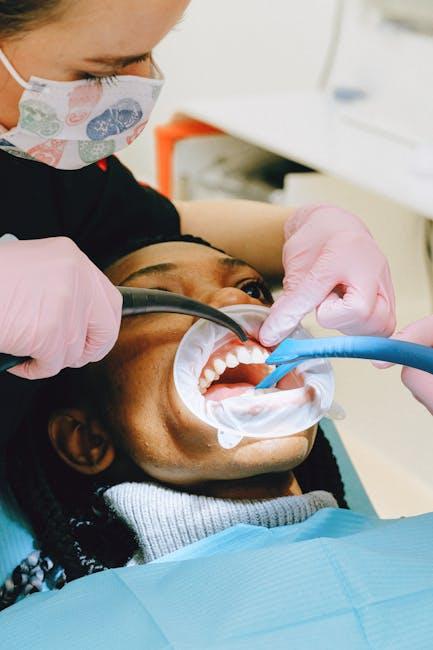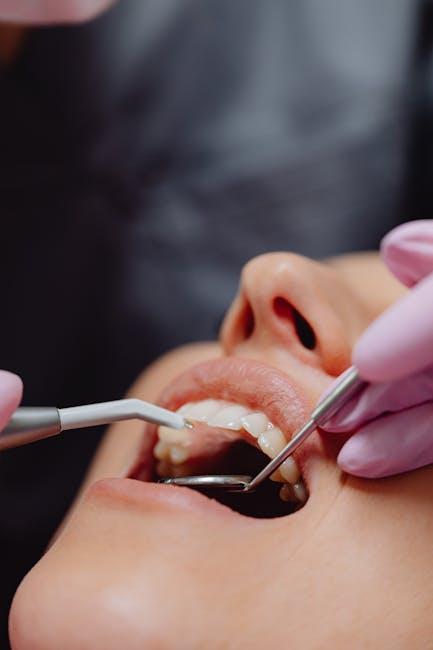
Study Reveals Hidden Dangers at Dentist’s Office for Tick Bite Allergy – The University of Maryland, Baltimore
If you suffer from a tick bite allergy, also known as Alpha-gal syndrome, you might want to think twice before your next dental appointment. A recent study conducted by the University of Maryland, Baltimore has uncovered unexpected risks related to dental materials that could trigger severe allergic reactions in patients with this condition.
What Is Tick Bite Allergy (Alpha-gal Syndrome)?
Alpha-gal syndrome, commonly called tick bite allergy, is an allergic reaction to a sugar molecule called galactose-alpha-1,3-galactose (alpha-gal), which is introduced into the human body through certain tick bites, especially the Lone Star tick prevalent in the United States.
Unlike traditional food allergies, this allergy often causes delayed allergic reactions hours after consuming mammalian meat (like beef, pork, or lamb) and other products derived from mammals. Symptoms can range from mild hives to life-threatening anaphylaxis.
The Study’s Key Finding: Hidden Dangers in Dental Care
The researchers at the University of Maryland, Baltimore discovered that some dental products and procedures could inadvertently expose people with Alpha-gal syndrome to allergenic substances. This revelation is crucial as dentistry has not traditionally been associated with tick bite allergy risks.
How Does Dental Care Trigger Tick Bite Allergy?
- Use of Mammalian-Derived Products: Certain dental materials such as bovine-derived collagen used in membranes, sutures, and bone grafts can contain the alpha-gal sugar.
- Latex and Product Contamination: Cross-contamination with mammalian proteins can occur in gloves or materials used in dental practices.
- Saliva Exposure and Delayed Reactions: Since Alpha-gal reactions are delayed, patients and dentists may not immediately connect the allergic episode to a recent dental treatment.
Important: Patients with Alpha-gal syndrome should inform their dental care providers before any procedure to avoid exposure to allergens.
Symptoms to Watch For After Dental Procedures
Tick bite allergy reactions don’t usually occur immediately. Symptoms may appear 3 to 6 hours after exposure, which complicates diagnosis.
| Symptom | Description | Time Frame After Exposure |
|---|---|---|
| Hives (Urticaria) | Red, itchy welts on skin | 3-6 hours |
| Swelling (Angioedema) | Swelling of lips, face, or throat | 3-6 hours |
| Gastrointestinal distress | Abdominal pain, nausea, diarrhea | 3-6 hours |
| Anaphylaxis | Life-threatening airway constriction and shock | Varies (urgent response needed) |
Practical Tips for Patients with Alpha-gal Syndrome Visiting the Dentist
- Inform Your Dentist Early: Always disclose your tick bite allergy before any procedure.
- Request Alternative Materials: Ask for non-mammalian-derived alternatives when possible (synthetic or porcine origins may be safer, but check with your allergist).
- Carry Emergency Medication: Have an epinephrine auto-injector accessible and ensure your dental office is prepared to handle allergic emergencies.
- Schedule Allergy Testing: Consult with your allergist about specific dental-related allergens to better assess risk.
- Follow Up Promptly: Report any allergic symptoms after dental work to your healthcare provider immediately.
Case Study: Real-Life Experience from a Tick Bite Allergy Patient
Jane, a 42-year-old woman from Maryland, had no idea her recurring allergic reactions after dental procedures were connected to her tick bite allergy until she participated in a University of Maryland, Baltimore pilot study. During a routine dental surgery requiring collagen-based grafts, Jane experienced severe hives and difficulty breathing hours afterward.
After extensive testing and doctor consultations, the link between her Alpha-gal syndrome and dental material exposure was confirmed. Since then, Jane’s dentists switched to synthetic materials, and she has had no adverse reactions.
Benefits of Awareness and Research from the University of Maryland, Baltimore
This groundbreaking research shines light on under-recognized risks at dental offices for tick bite allergy sufferers. The benefits include:
- Better patient safety through education and pre-appointment screening.
- Development of allergy-safe dental materials and protocols.
- Improved diagnosis of allergy-related dental complications.
- Enhanced collaboration between allergists and dental professionals.
Conclusion: Taking Control of Your Dental Health with Tick Bite Allergy
The discovery of hidden dangers at the dentist’s office for individuals with tick bite allergy marks a vital step toward safer dental care. If you have Alpha-gal syndrome or suspect you might, communication with your healthcare providers is key to preventing allergic reactions triggered by dental treatments.
Thanks to the pioneering work from the University of Maryland, Baltimore, patients and dental professionals alike are now more informed and equipped to manage these risks effectively. With proper precautions, tick bite allergy sufferers can maintain optimal oral health without compromising their safety.
Remember: Always disclose your allergy before dental procedures and seek care from providers knowledgeable about Alpha-gal syndrome.


